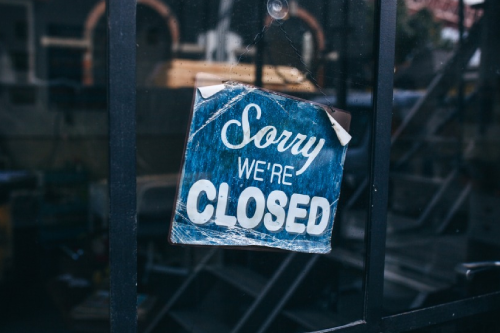Bank economist says the ban on construction and non-essential retail have sent GDP projections plummeting

The latest lockdown restrictions are likely to send GDP into negative growth according to ANZ senior economist Catherine Birch. Before the NSW government announced the closure of construction sites and all non-essential retail across greater metropolitan Sydney, the bank had forecast slightly positive GDP growth of about 0.4% in Q3, she told MPA.
“NSW retail and construction together account for almost 4% of the national economy,” she said. “When we look at retail, there’s still click and collect, there’s still home delivery that’s available, similar to what we saw in stage four in Melbourne last year.
“That will really cushion the impact on retail, whereas construction is going to be much stricter on activity than what we saw in stage four in Melbourne last year. That’s going to have more of an impact.”
But while scores of construction workers won’t be able to work until at least July 30, ANZ doesn’t expect the restriction to weigh heavily on the labour market. This is in part due to the general belief that the lockdown will continue beyond the end of the month, said Birch. ANZ has factored in a lockdown of eight weeks in total as part of its projections, which would mean an end to the stay-at-home orders in mid-August.
Read more: Lockdown likely to drag on
“Because there’s that sort of expectation, businesses are unlikely to lay off workers in the meantime,” she said. “We may see a lot of what we call labour hoarding where even if businesses aren’t fully using their workers they’ll still keep them on because they can see the restrictions will ease.
“They don’t want to have to go through the costs and delays of rehiring again once restrictions ease, so that’s likely something that will dampen the effect on the labour market.”
Birch also pointed out that much of the government support announced for NSW businesses are contingent on companies retaining their existing workers, so while there will likely be a change in hours worked, there isn’t likely to be an increase in unemployment.
Speaking before Victoria’s lockdown was extended, Birch said the bank had factored in a two-week lockdown which would “see another step down in activity from what we would see otherwise in the third quarter.”
She pointed out that previous short lockdowns had been followed by a swift rebound in activity.
“If you look at ANZ spending data for example, in lockdown four in Victoria we saw spending initially fall about 40%,” she said. “But then it rebounded straight away once restrictions eased and was actually 30% higher immediately post-lockdown than it was going into the lockdown.”
Read next: Government lockdown support – “It’s not enough”
While difficult to tell what the economic impact would be if Sydney’s lockdown did indeed go beyond July 30, Birch said the act of halting construction and non-essential retail could ultimately be better for the economy over the long term.
“I think the point around these tighter restrictions around construction and retail is that the more we can clamp down on movement and that sort of thing now, the more quickly we’ll be able to get cases down and the more quickly NSW will be able to come out of its lockdown,” she said. “Overall, that should mean better overall economic outcomes than if the lockdown extended for a longer period with less strict restrictions.”
 Kate McIntyre is an online writer for Mortgage Professional Australia. She has a wealth of experience as a storyteller and journalist for a range of leading media outlets, particularly in real estate, property investing and finance. She loves uncovering the heart behind every story and aims to inspire others through the artful simplicity of well-written words.
Kate McIntyre is an online writer for Mortgage Professional Australia. She has a wealth of experience as a storyteller and journalist for a range of leading media outlets, particularly in real estate, property investing and finance. She loves uncovering the heart behind every story and aims to inspire others through the artful simplicity of well-written words.Email | LinkedIn



